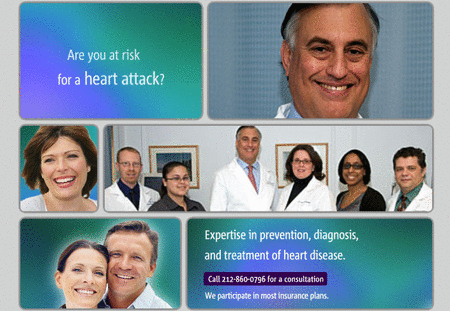According to a recent survey, heart attacks are the number one death-causing medical condition in America. According to the AHA (American Heart Association), chances of heart attack are higher in women than in men. Furthermore, the symptoms of heart attack that women tend to experience vary significantly from the ones usually experienced by men.
Knowing how to recognize signs of a heart attack is especially important for women. Here are some symptoms of heart attack experienced by women:
Discomfort in upper body:
A typical sign of this disease is chest pain. Usually women experience mild pain and not excruciating pain experienced by men. The pain feels like a pressure on the chest. Pain between the shoulder blades can also be a sign of a heart attack. Other types of discomfort in the upper body that are signs of heart attack include pressure in the jaw, shoulders, abdominal area, and neck.
Prodromal symptoms
Prodromal, signs of heart attack in women can sometimes persist for weeks and even months at a time. Before a heart attack, the majority of women report chest discomfort, anxiety, indigestion, difficulty in sleeping, shortness of breath, and fatigue. While any of these signs may be caused by other factors, these combined symptoms mean that she is at a risk of a heart attack and needs quick medical attention.
Special factors
Early signs of heart attack in women need to be given due consideration especially if a woman is above the age of 40 and/or has a family history of heart disease. Obese women that live a sedentary lifestyle and those who take contraceptive pills fall should also seek medical consultation.
Other common heart attack symptoms
These symptoms are common both in men as well as women. However, women are more likely to experience vomiting, nausea, heartburn and gas-like pain. Women may also feel weakness, fatigue, dizziness, and light-headedness just before a heart attack.
All women, especially those who are at a higher risk of this life-threatening situation, should be well-educated about recognizing these signs. Upon experiencing any of the signs mentioned above, a specialist should be consulted immediately. In the case of a heart attack, emergency medical services should be called and proper medical attention should be given to the patient.
Chances of survival are higher if proper medical attention is given within first hour of a heart attack. It can also minimize the damage caused to the muscles of heart.
By being aware of heart attack symptoms and have a proper knowledge of how to deal with them, you can save a life.
Knowing how to recognize signs of a heart attack is especially important for women. Here are some symptoms of heart attack experienced by women:
Discomfort in upper body:
A typical sign of this disease is chest pain. Usually women experience mild pain and not excruciating pain experienced by men. The pain feels like a pressure on the chest. Pain between the shoulder blades can also be a sign of a heart attack. Other types of discomfort in the upper body that are signs of heart attack include pressure in the jaw, shoulders, abdominal area, and neck.
Prodromal symptoms
Prodromal, signs of heart attack in women can sometimes persist for weeks and even months at a time. Before a heart attack, the majority of women report chest discomfort, anxiety, indigestion, difficulty in sleeping, shortness of breath, and fatigue. While any of these signs may be caused by other factors, these combined symptoms mean that she is at a risk of a heart attack and needs quick medical attention.
Special factors
Early signs of heart attack in women need to be given due consideration especially if a woman is above the age of 40 and/or has a family history of heart disease. Obese women that live a sedentary lifestyle and those who take contraceptive pills fall should also seek medical consultation.
Other common heart attack symptoms
These symptoms are common both in men as well as women. However, women are more likely to experience vomiting, nausea, heartburn and gas-like pain. Women may also feel weakness, fatigue, dizziness, and light-headedness just before a heart attack.
All women, especially those who are at a higher risk of this life-threatening situation, should be well-educated about recognizing these signs. Upon experiencing any of the signs mentioned above, a specialist should be consulted immediately. In the case of a heart attack, emergency medical services should be called and proper medical attention should be given to the patient.
Chances of survival are higher if proper medical attention is given within first hour of a heart attack. It can also minimize the damage caused to the muscles of heart.
By being aware of heart attack symptoms and have a proper knowledge of how to deal with them, you can save a life.
